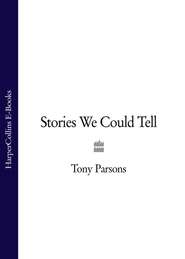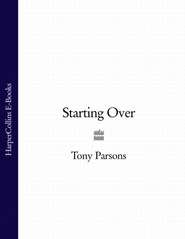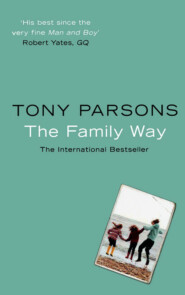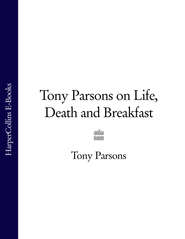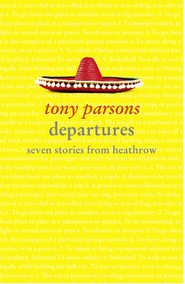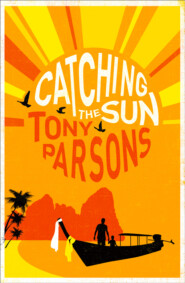По всем вопросам обращайтесь на: info@litportal.ru
(©) 2003-2024.
✖
Men from the Boys
Автор
Год написания книги
2018
Настройки чтения
Размер шрифта
Высота строк
Поля
‘Print,’ he said, cramming sixty years of working life into one syllable. ‘That ended.’ He laughed. ‘The welfare state was built for men like your father,’ he said, and then his eyes shone with a sudden flare of anger. ‘Gift of a grateful nation. It was meant to be an effing safety net for the needy – not an effing comfy sofa for the effing feckless. Men – like your dad and me.’
Except that my dad would never have said effing three times in the same sentence. That was the big difference between my old man and this old man. I glanced at him and saw him staring out at the city streets, shaking his head.
‘Where did England go?’ said Ken Grimwood.
‘You’re looking at it,’ I replied.
‘This country’s finished,’ he said. ‘Land fit for heroes? They told us we were heroes and then they made us crawl. Told us we were heroes and then they made us crawl! More like a land fit for yobs and scroungers and anyone who just jumped off the banana boat…’
‘Then why stay?’ I said, cheerfully rising to the bait. I had argued like this before. It was like Sunday dinner with Dad.
‘I wanted to go,’ the old man said, with that same hard, resentful certainty that my father could summon up so easily. ‘Fifty year ago. To Australia. That’s the place. Got a son out there. Wanted to go myself. We were going to be ten-pound Poms. You went on the boat. Took bloody ages. We had been down to Australia House. Filled in all the forms and everything.’
‘What happened?’
‘My wife,’ he said. ‘My Dot.’ He smiled, thinking about his dead wife. ‘In the end she wouldn’t leave her mum.’ Then his voice went flat and hard. ‘So we stayed.’
‘I think they may have one or two immigrants in Australia,’ I said. ‘In fact, now I come to think of it, the entire country is made up of immigrants.’
‘That’s just where you’re wrong,’ he said, and he looked out at the grimy streets of King’s Cross but he was seeing Bondi Beach. ‘And I fancied seeing the penguins. I always wanted to see that. The penguins on Phillip Island near Melbourne. Thousands and thousands of the little buggers. They come out of the sea when it gets dark. On Summerland Beach. Every night of the year. I always fancied seeing that. What a sight it must be – all the penguins on Summerland Beach.’
‘Penguins?’ I said. ‘In Australia?’
He stared at me thoughtfully.
‘Exactly how little do you know?’ he said.
The dog was on me as soon as I got out of my car.
A rocket of muscle and teeth and bulging eyes, bounding up on my chest, pushing me back against the car, growling as though it had a human bone lodged somewhere deep in its throat.
Two men were milling around outside the flats. They were not kids with hooded tops that covered their faces and baggy jeans that did not cover their backsides. They were men around my age who had been losing hair and gaining weight for twenty years, so that now they resembled a pair of giant boiled eggs. I could see them tearing up the terraces in their number one crops two decades ago. They were old but they were not exactly adult. They were Old Lads. They looked up at me with their blank white faces. And they smiled.
Ken was ambling across the courtyard, fumbling with his keys. I tried to follow him and the dog shoved me back against the car with an outraged snarl. I looked up at the Old Lads.
‘He likes you,’ one of them said, and they both had a giggle at that. ‘Tyson likes you, mate. If Tyson didn’t like you he would have ripped your face off by now. You should be flattered, mate.’
And he did like me. I could tell by the way he suddenly settled down with his hindquarters wrapped around one of my legs. The growling subsided to a romantic moan.
I tore myself away, the vicious creature whimpering with frustration, and ran after Ken. He had paused halfway up the stairs.
‘Just taking a breather,’ he said, and I remembered how, near the end of his life, every breath my father took had been an effort. I stared down at the courtyard that the low-rise council flats overlooked. The Old Lads were shuffling off, the dog snarling and snorting around their snow-white trainers.
‘They should keep that thing on a lead,’ I said.
Ken began to get up. I took his arm and helped him the rest of the way.
‘They love their dogs round here,’ he said. ‘Big animal lovers, they are. Those two charmers are in the flat above me. With their old mum. They love their mum and their mutt, but not much else, as far as I can fathom.’
We had reached the first-floor landing. He had his keys in his hand, outside a green door that appeared to be made of cardboard. I could hear what sounded like a hundred television sets. I wasn’t used to it. All these people living on top of you.
‘Thanks for the lift,’ he said. ‘Fancy a cup of tea before you shoot off?’
I wanted to get out of here. But I looked down at the courtyard and the Old Lads were still mooching around with their killer dog. They strolled around the double-parked cars as if they owned all they surveyed, their giant bald noggins like twin moons. It looked like a car park in hell.
So I found myself following Ken inside. His flat seemed far too tiny to be the final stop in a lifetime. On the wall was a framed poster of a blonde girl on a white beach. Australia, it said. What are you waiting for?
There were photos on the mantelpiece. In black and white, a sailor and his bride. Also in black and white, a boxer posing for the camera, trying not to smile. The young Ken Grimwood, fists in a southpaw stance, a glint in his eye, his stomach like a washboard. And in faded colour, three smiling children in the sixties. Two boys and a girl, grinning on the doorstep of a caravan.
‘Good to be home,’ coughed Ken. ‘Take a pew while I put the kettle on.’
I sank into an orange sofa made of some synthetic material that must have seemed modern in the 1950s and now was just a fire hazard. On the coffee table was a copy of the Racing Post. The sofa seemed to suck me into its polyester heart.
The telephone rang. Ken was banging around in a kitchen the size of a coffin, busy with our tea. The phone kept ringing. I picked it up.
‘Dad?’
A woman’s voice. The daughter in Brighton. Tracey.
‘I’ll get him,’ I said, and when she wanted to know who I was, I told her. No apology for not calling me back. No thanks to Harry’s Magic Taxis for bringing him home from the hospital.
‘Is he all right?’ she said.
I looked at the phone. ‘He’s dying,’ I said.
Ken came back into the room with two mugs of tea on a tray. There was the damp squib of a roll-up glowing between his lips.
‘I know he’s dying,’ she snapped, as if I was the idiot home help. ‘I mean, apart from that.’
‘Apart from the dying? Oh, apart from that, he’s great.’
I heard the woman bristling with irritation. ‘He’s not still smoking, is he?’ Then her voice choked and broke. ‘Oh, that impossible old man.’
Ken smiled at me and bent to place the tea on the coffee table. When he had straightened up – it took a while – he took the phone from me. I could hear the voice of his daughter. He didn’t say much.
‘Yes…no…yes, as it happens…no, as it happens.’
He winked at me as he took a long toke on his cigarette and I looked away. I had already decided that I didn’t like her very much.
But she was right.
He was an impossible old man.
‘She wants a word,’ Ken said, handing me back the phone. The daughter’s voice was shrill with hysteria in my ear.
‘I just can’t believe you’re letting him smoke,’ she said. ‘What’s wrong with you?’
Then she hung up. Ken was laughing to himself.






